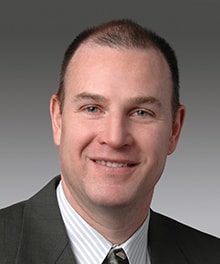U.S. Supreme Court Will Hear South Dakota's Sales Tax Case
By Paul Graney, State & Local Tax Leader & John Bonk, Senior Manager, Tax & Business Services
On January 12, 2018, the United States Supreme Court decided that it will hear a South Dakota case (State of South Dakota v. Wayfair Inc., Overstock.com, Inc., and Newegg Inc.) setting forth an economic nexus provision for sales tax.
This law was ruled unconstitutional by South Dakota state courts last year, largely based upon the prior United States Supreme Court decision in Quill Corp. v. North Dakota. Quill required that a retailer must have a physical presence in a state in order to be required to collect sales tax for sales into that state. The South Dakota statute requires remote retailers with annual in-state sales exceeding $100,000, or 200 separate transactions, to collect and remit sales tax.
Many states have determined that the Quill decision from 1992 has not kept up with the way modern commerce is transacted. As a result, many states proposed or enacted laws that contradict the Quill decision. The implementation of these laws has been largely delayed due to immediate legal challenges. The South Dakota case happened to make it through the state court system the quickest, and therefore, will be the case the United States Supreme Court will hear. The decision in South Dakota will have an impact on other states’ economic nexus laws, including states that have yet to put forth their own versions. It is reasonable to expect that if the court finds for the state, then the rules requiring remote retailers to collect sales tax will change unilaterally across the country.
If the court rules in favor of South Dakota, the determination for retailers with regards to sales tax nexus will likely become an easy question. Retailers with annual in-state sales exceeding $100,000, or 200 separate transactions, in many states will be required to collect and remit sales tax. This will create both a compliance burden and a research burden on retailers. Retailers will be required to file in many states where they previously had no such requirement due to a lack of physical presence. In many industries, such as technology and healthcare, research into the taxability of products and services will become an immediate need, since states don’t uniformly tax all items and services.
The proceedings are expected to begin in the spring, with a decision in the summer of 2018. A ruling in favor of the state would be one of the largest changes in state taxation in the last 25 years.
Please contact your Marcum State and Local Tax professional to address any questions regarding this case or any other tax matter.





















